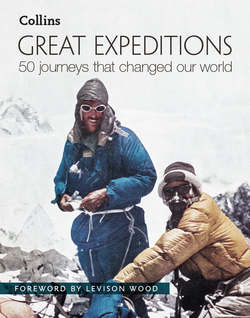Читать книгу Great Expeditions: 50 Journeys that changed our world - Levison Wood - Страница 18
ОглавлениеThe American Frontier
Lewis and Clark’s Corps of Discovery expedition
“They collect the wild fruits and roots, attend to the horses or assist in that duty, cook, dress the skins and make all the apparel, collect wood and make their fires, arrange and form their teepees, and when they travel, pack the horses and take charge of all the baggage; in short the man does little else except attend his horses hunt and fish.
Meriwether Lewis on the role of the Shoshone woman, August 19 1805.
WHEN
1804–6
ENDEAVOUR
To explore the huge and unknown new territory recently gained by the United States.
HARDSHIPS & DANGERS
The explorers faced an ever-present threat of violence from native tribes. They also experienced severe hunger, exhaustion and frostbite.
LEGACY
The expedition realized the moral right of United States to extend across the continent to the Pacific. It brought back hundreds of previously unknown species, as well as detailed maps of previously uncharted areas.
The men could go no further.
Frostbitten, lame and hungry beyond reason, they stood at the apex of a continent. Behind them lay the full length of the mighty river that they had spent sixteen exhausting months paddling, trekking, and rowing up. Ahead of them, they had expected to see another river, one that would give them food and a gentle ride down to the ocean. Instead, they saw a monstrous range of icy mountains. They would need horses and many days’ supplies to cross them and the only natives they had found were refusing to offer them anything. This, truly, was the end of their journey. They would never reach their destination.
Then the woman stepped forward. And their fortunes changed forever.
It had begun with Napoleon Bonaparte.
In 1803, the French Emperor was preparing for the seemingly inevitable war with Britain. As part of its overseas empire, France then owned ‘Louisiana’ — not the US state we know today, but a vast tranche of land comprising all or part of fourteen modern states. This territory was difficult for France to control remotely and, in a war, would be threatened by British forces coming through their territories in what is now Canada. ‘Why not simply sell Louisiana to the United States?’ counselled Napoleon’s minister of finance. They could fill their war chest with cash and divest themselves of an expensive colonial encumbrance at one and the same time. President Thomas Jefferson snapped the area of the United States. The land cost less than three cents an acre.
